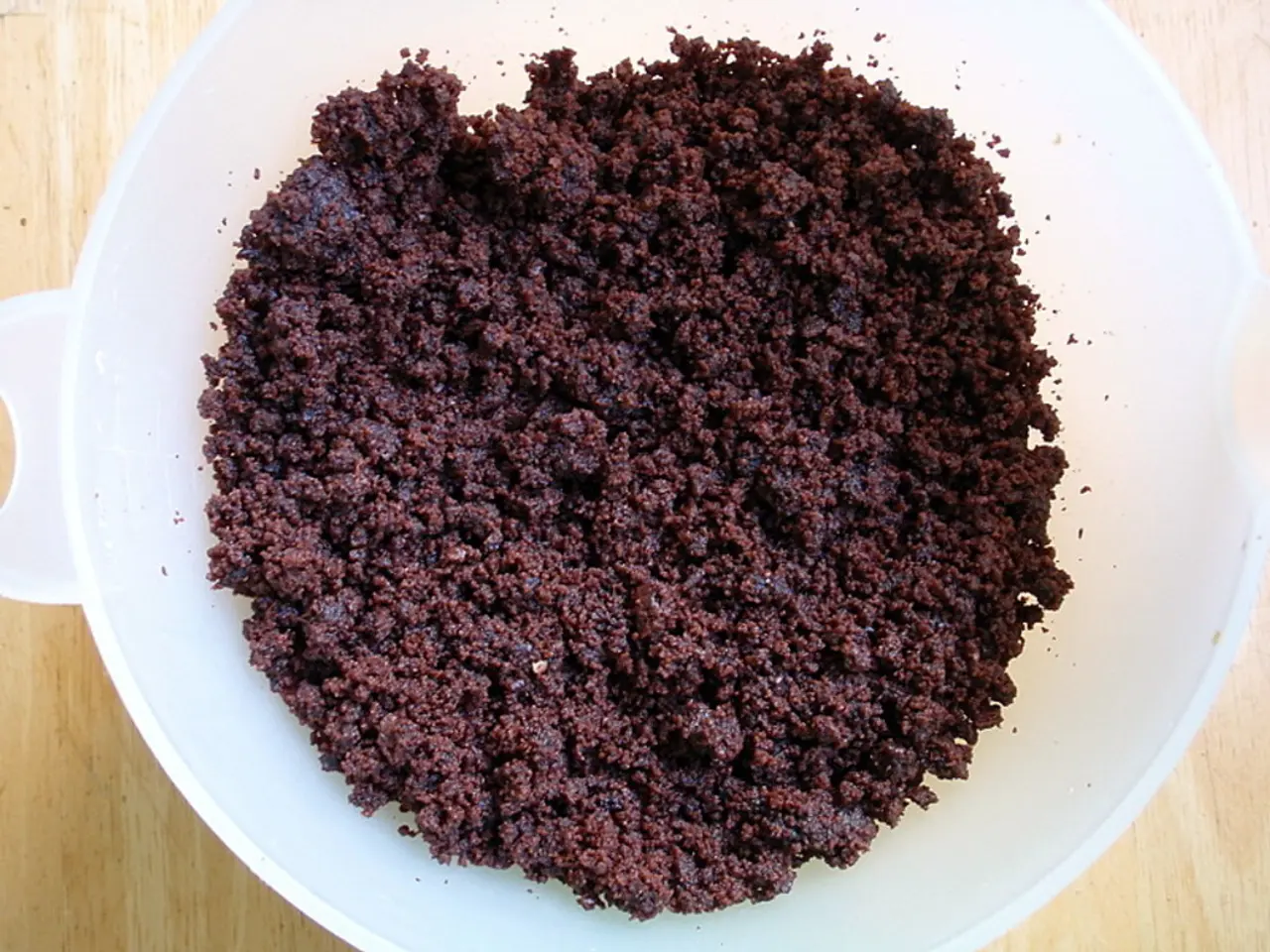Essential Nutritional Supplements and Vitamins for Crohn's Disease: Important Facts to Understand
In the battle against Crohn's disease, maintaining a balanced diet and addressing nutrient deficiencies is crucial. This inflammatory bowel disease (IBD) causes inflammation in the gastrointestinal tract, leading to symptoms such as diarrhea, blood in the stool, stomach cramps and pain, fatigue, and weight loss.
One of the key strategies for managing Crohn's disease is identifying foods that a person can tolerate and those that trigger symptoms. Keeping a food diary can help a person identify foods that bring on symptoms, enabling them to create a dietary plan that suits their needs.
However, limitations in the diet due to Crohn's disease may require additional supplementation to ensure adequate nutrient intake. People with Crohn's disease are commonly recommended to take a multivitamin that includes vitamins A, D, E, and K, along with iron, vitamin B12, vitamin D3/K2, and sometimes folic acid, to address nutrient deficiencies caused by impaired absorption and intestinal inflammation.
Multivitamins including fat-soluble vitamins A, D, E, and K are essential because Crohn’s disease often impairs fat absorption in the small intestine, leading to deficiencies that can weaken immunity, bone strength, vision, skin healing, and muscle health.
Iron supplementation is crucial due to the high risk of iron-deficiency anemia from internal gut bleeding and poor iron absorption. Ferrous bisglycinate is a preferred form as it is gentle on the gut and highly absorbable, reducing side effects like constipation and nausea.
Vitamin D3/K2 helps maintain bone density, which can be compromised in Crohn's disease patients due to poor absorption and inflammation.
Vitamin B12 is also commonly deficient in Crohn’s patients due to ileal involvement; supplementation supports red blood cell production and neurological function.
Folic acid supplementation (1 mg daily) is recommended particularly for women with Crohn’s who are trying to conceive, starting at least three months before conception, as Crohn’s and some medications can reduce folate levels.
Probiotics are often suggested to help restore healthy gut bacterial balance disrupted by inflammation and treatment.
In addition, maintaining electrolyte balance and proper hydration is important due to symptoms like diarrhea that deplete fluids and electrolytes. Meal replacement shakes fortified with vitamins and minerals can be used during flare-ups to ensure adequate nutrition when eating is difficult.
Other supplements that may be recommended for people with Crohn's disease include iron, calcium, and omega-3 fatty acids. In addition to supporting a healthy diet, some supplements such as omega-3 fatty acids and curcumin have anti-inflammatory properties and may help manage IBD symptoms.
It is advisable for patients to work closely with their healthcare team to tailor supplementation to their individual needs. Remember, it is crucial to consult a doctor before starting to take any vitamins or supplements. By managing their nutrition effectively, people with Crohn's disease can improve their overall health and quality of life.
[1] https://www.ncbi.nlm.nih.gov/pmc/articles/PMC5663958/ [2] https://www.ncbi.nlm.nih.gov/pmc/articles/PMC3731133/ [3] https://www.ncbi.nlm.nih.gov/pmc/articles/PMC4207553/ [4] https://www.ncbi.nlm.nih.gov/pmc/articles/PMC5669918/ [5] https://www.ncbi.nlm.nih.gov/pmc/articles/PMC5577793/
- Maintaining a balanced diet and addressing nutrient deficiencies is crucial in the battle against Crohn's disease, a health-related medical-condition that causes inflammation in the digestive tract.
- Identifying foods that a person can tolerate and those that trigger symptoms is a key strategy for managing Crohn's disease.
- Keeping a food diary can help a person identify foods that bring on symptoms, enabling them to create a dietary plan that suits their needs.
- Limitations in the diet due to Crohn's disease may require additional supplementation to ensure adequate nutrient intake, as people with Crohn's disease are commonly recommended to take a multivitamin that includes vitamins A, D, E, and K, along with iron, vitamin B12, vitamin D3/K2, and sometimes folic acid.
- Multivitamins including fat-soluble vitamins A, D, E, and K are essential because Crohn’s disease often impairs fat absorption in the small intestine, leading to deficiencies that can weaken immunity, bone strength, vision, skin healing, and muscle health.
- Iron supplementation is crucial due to the high risk of iron-deficiency anemia from internal gut bleeding and poor iron absorption in Crohn's disease patients.
- Vitamin D3/K2 helps maintain bone density, which can be compromised in Crohn's disease patients due to poor absorption and inflammation.
- Vitamin B12 is also commonly deficient in Crohn’s patients due to ileal involvement; supplementation supports red blood cell production and neurological function.
- Folic acid supplementation (1 mg daily) is recommended particularly for women with Crohn’s who are trying to conceive, starting at least three months before conception, as Crohn’s and some medications can reduce folate levels.
- Probiotics are often suggested to help restore healthy gut bacterial balance disrupted by inflammation and treatment in Crohn's disease patients.
- In addition to supporting a healthy diet, some supplements such as omega-3 fatty acids and curcumin have anti-inflammatory properties and may help manage IBD symptoms in chronic-diseases like Crohn's. It is advisable for patients to work closely with their healthcare team to tailor supplementation to their individual needs, and to consult a doctor before starting to take any vitamins or supplements for health-and-wellness.




